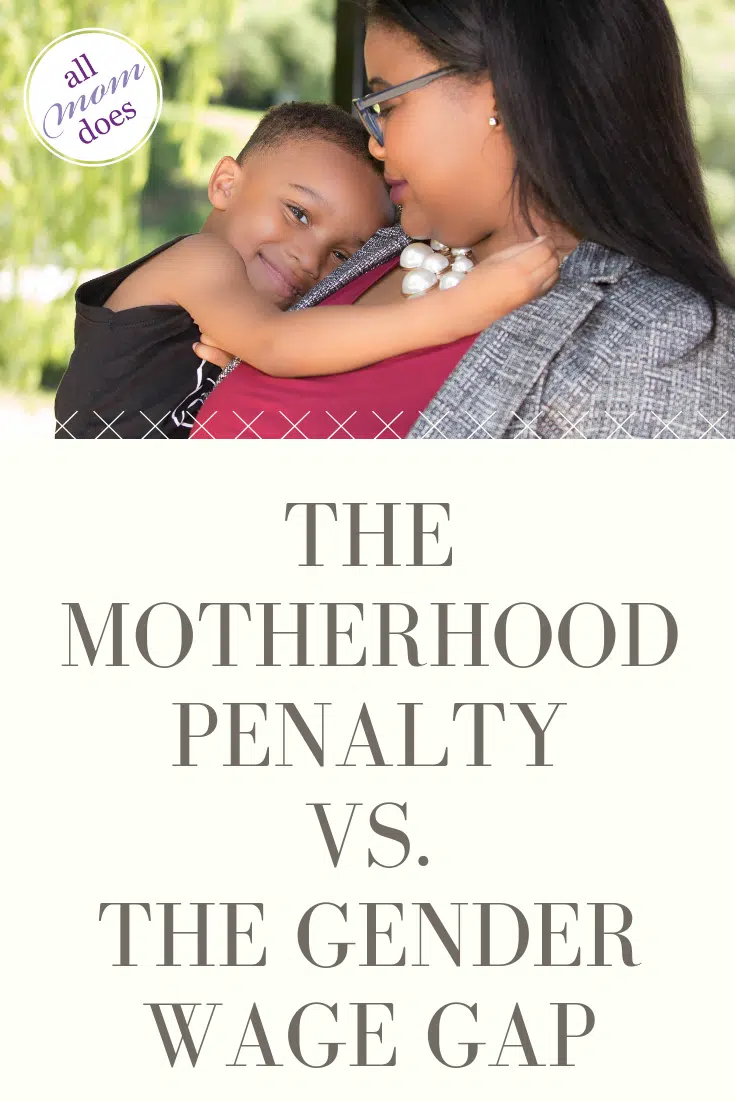Today, a woman earns about 80 cents to every man’s dollar. This gap can widen or shrink depending on several factors such as race, age, household, and much more. When you hear “Gender Wage Gap”, you may think it’s the result of men being seen as better than women. But actually… discrimination based on gender only accounts for a small percentage of this disparity in income.
According to the latest episode of Explained on Netflix, the rest of the “Gender Wage Gap” story is significantly more convoluted. The “Why Women are Paid Less” episode of Explained discusses how the gender wage gap is about choice and opportunity especially in regards to motherhood. Watching this episode was extremely enlightening and inspired me to inform you all on the motherhood penalty and how we can take an active stance as working mothers, employers, and partners to ensure this is no longer an issue.
A study was published that followed MBA graduates to observe their pay disparities over time. Right out of graduate school, women’s average salary was $115,000, while men earned $130,000. This shows a small gap but that could be credited to men averaging more weekly hours and more work experience in the study. However, the shocker comes in at nine years later when the average salary for women is $250,000, while men had $400,000. Men had a 60% advantage over their female counterparts in income.
As you can observe from the study above, the wage gap starts small but immediately starts to grow significantly through a woman’s 20s and 30s. Research shows that the wage gap starts to then shrink as a woman enters her 40s and 50s.
Hmmmmm…
I wonder what milestone usually happens in a woman’s life in her 20s and 30s that doesn’t usually happen in her 40s and 50s?
1 word. 2 syllables.
BABIES!
Sara Kliff stated best, “The highest-paying jobs disproportionately reward those who can work the longest, least flexible hours. These jobs penalize workers who have responsibilities outside the workplace.” Those workers tend to be women, more specifically moms!
Childless, unmarried women earn 96 cents for every dollar a man earns. The study we discussed earlier about the MBA graduates showed that women with children had a wage gap over twice as large as women without. The pay gap between mothers and non-mothers could in fact be larger than the pay gap between men and women.
Quick Motherhood Penalty Observations from Harvard Studies:
- Visibly pregnant women are judged as being less committed to their jobs, less dependable, less authoritative, more emotional, and more irrational than otherwise equal, non-pregnant female managers.
- For women, competency ratings were 10% lower for mothers compared to non-mothers among otherwise equal candidates.
- Mothers were considered to be 12% less committed to their jobs than non-mothers while fathers were perceived as being 5% more committed than non-fathers.
- Mothers were 6 times less likely than childless women and 3.35 times less likely than childless men to be recommended for hire.
- Childless women are 8.2 times more likely to be recommended for a promotion than mothers.
- Mothers have a 7.9% lower starting salary than non-mothers ($139,000 compared to $151,000, respectively), which is 8.6% lower than the recommended starting salary for fathers. Among men, the trend is reversed, and fathers were offered a significantly higher starting salary than childless men ($152,000 compared to $148,000, respectively).
The statistics from the studies above are jarring especially since the number of single mothers is at an all-time high. Who would need the most opportunity, financial freedom, and stability when it comes to their career? A single mother or a childless woman? I hate to compare the two but statistics like the ones above are key to explaining why poverty is extremely high amongst single mothers and why we need to further evaluate the notion behind the gender wage gap not only for women, not only for mothers, but for our children… especially those living in poverty.
I strongly encourage us all to become more aware of the “motherhood penalty” and how it continues to impact our ability to achieve equality and provide the best opportunities for not only ourselves as women and mothers but our children, the leaders of tomorrow.
Have you experienced the “motherhood penalty”? Share your story with us!

 Read more of Georgina’s contributions to allmomdoes here.
Read more of Georgina’s contributions to allmomdoes here.

















